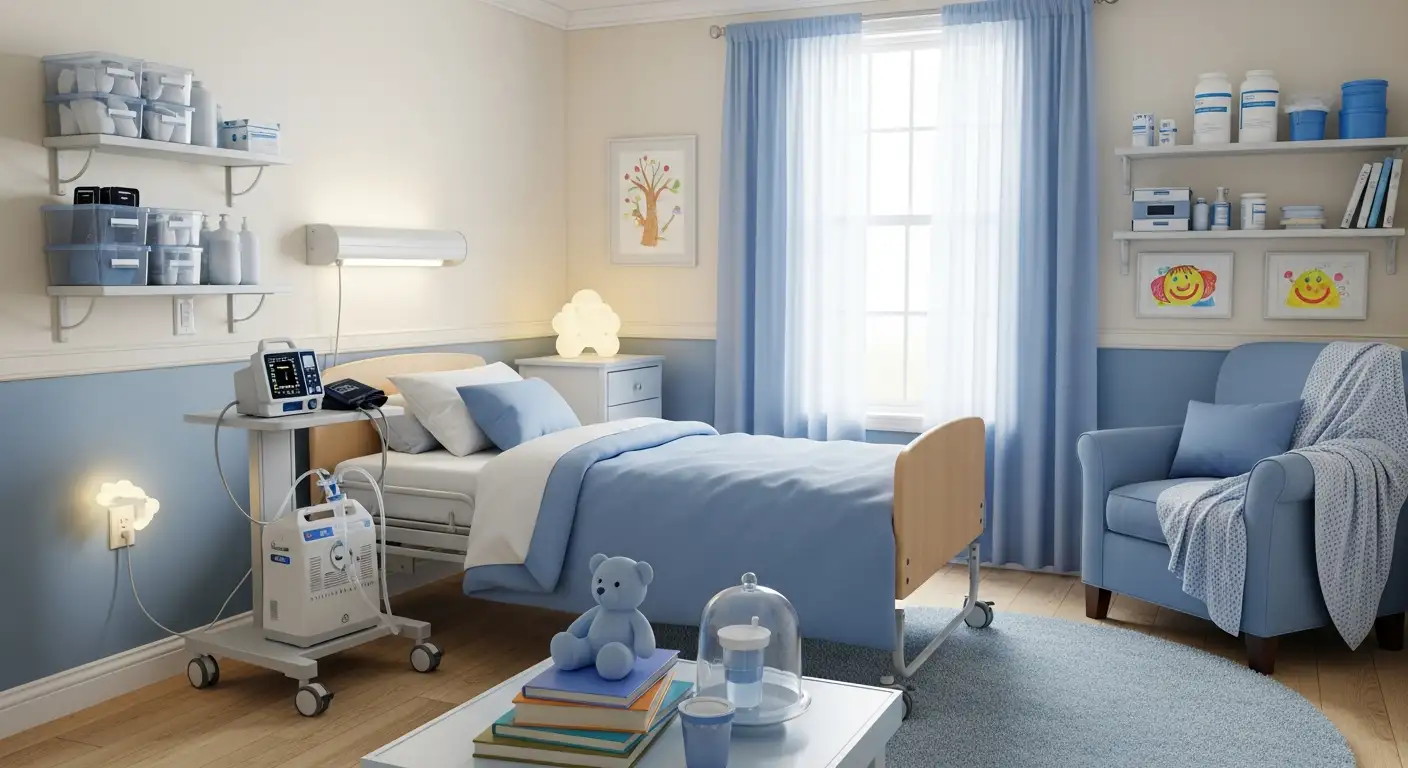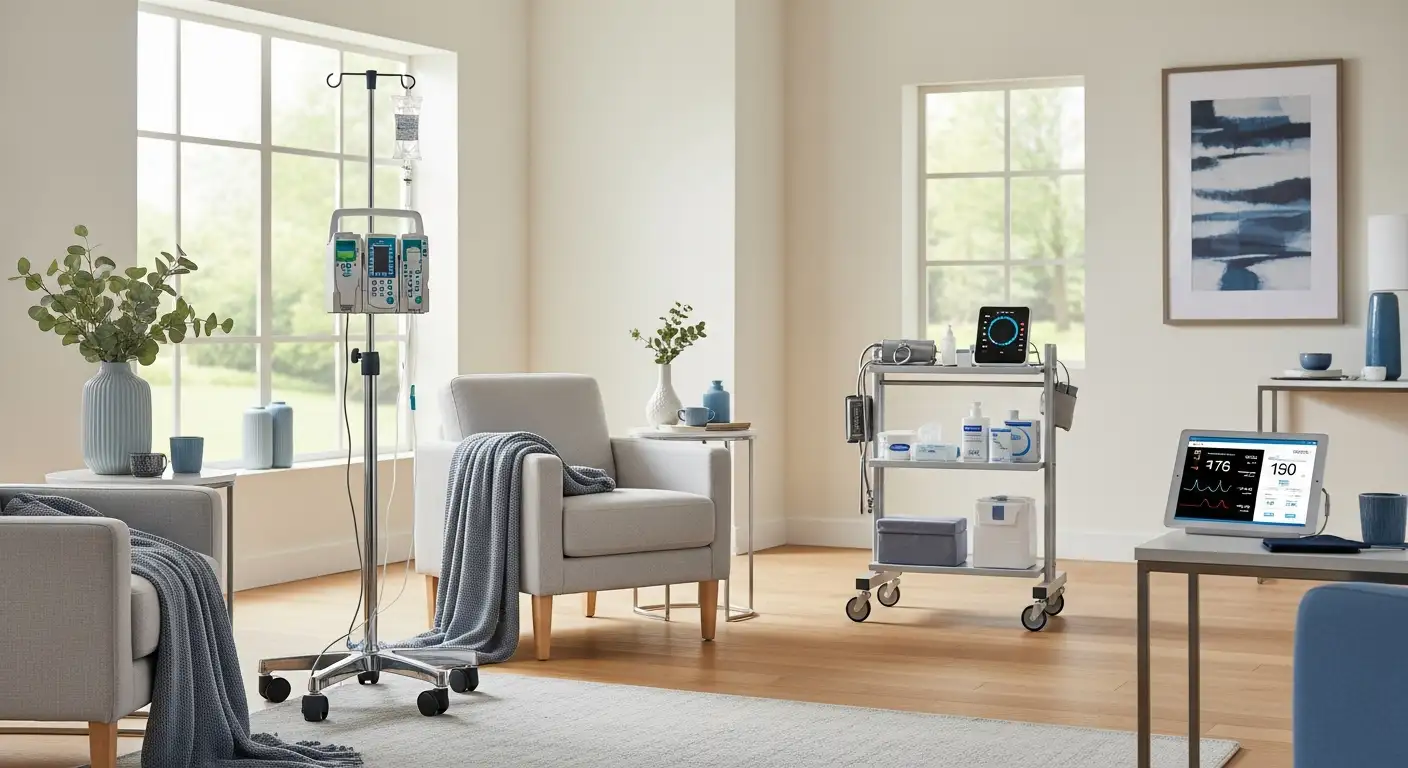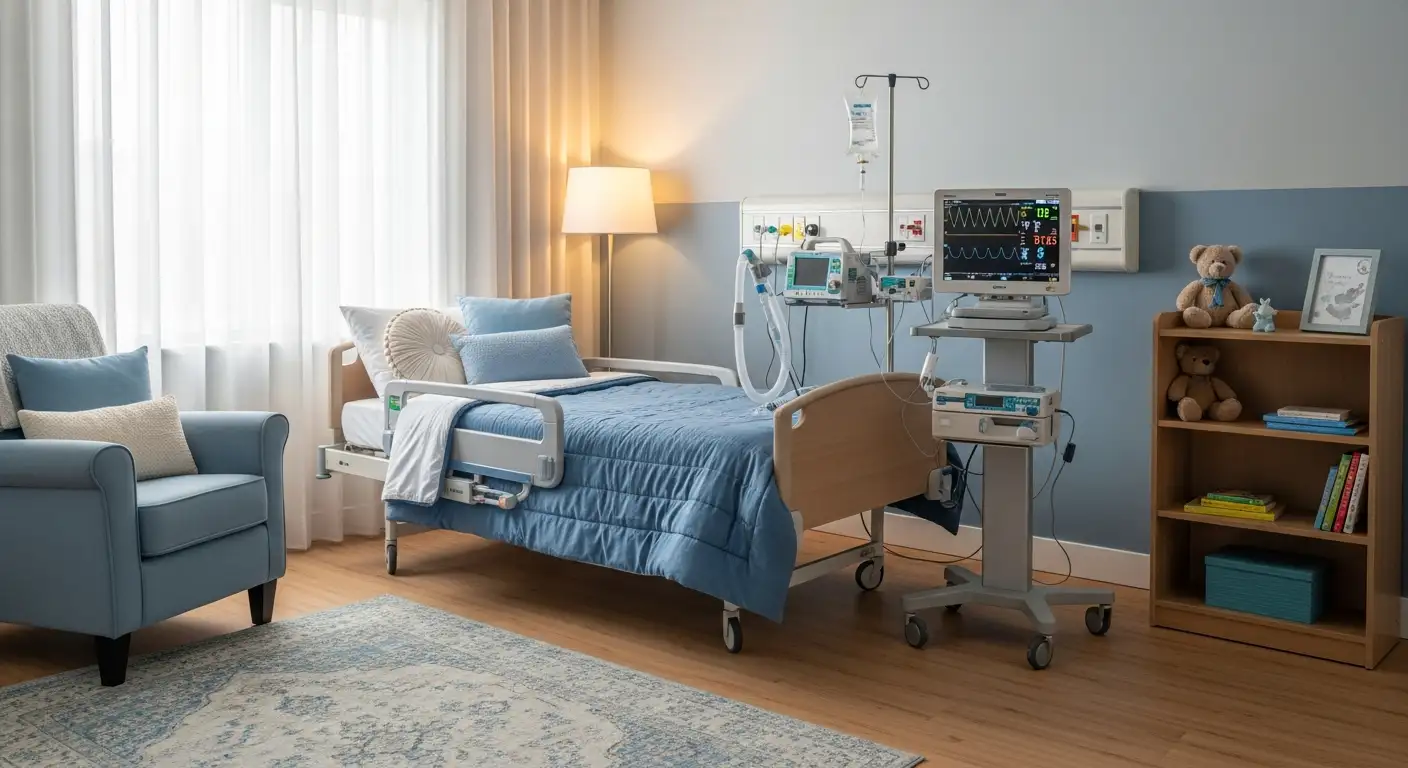Introduction to Pediatric Home Care and Behavioral Outcomes
Pediatric home care has emerged as a vital platform for fostering positive behavioral outcomes among children, especially those with complex health needs. By integrating family participation, trauma-informed approaches, and evidence-based interventions within a familiar environment, home care not only supports physical health but also nurtures emotional, social, and neurodevelopmental well-being. This article explores how personalized, relationship-based care in the home setting promotes positive behaviors, early relational health, and lifelong resilience.
Understanding the Framework of Positive Behavior Support (PBS) in Pediatric Home Care

How does pediatric home care promote positive behavioral outcomes in children?
Pediatric home care is a powerful platform for fostering positive behaviors in children, especially those who face complex health or developmental challenges. It emphasizes personalized, culturally sensitive, and trauma-informed approaches tailored to each child's unique needs.
A central element of PBS within home care is the early identification and intervention process. Using integrated screening tools, healthcare professionals can detect behavioral or mental health issues promptly. This allows for timely support and reduces the likelihood of long-term difficulties.
Collaboration is vital. Primary care providers, mental health specialists, families, and caregivers work together to develop and implement targeted intervention plans. This teamwork ensures consistency in strategies, fosters trust, and addresses behaviors effectively.
Continuity and consistency of care are essential in helping children build better social and communication skills. By maintaining regular routines and stable relationships, children feel secure, which encourages positive behavior.
Embedding mental health professionals and evidence-based parenting programs directly into the home setting enhances caregivers' knowledge, skills, and confidence. These programs promote responsive parenting, emotional regulation, and social skills, reinforcing behavioral improvements.
Beyond individual interventions, comprehensive coordination facilitates access to various services, leading to improved overall health and well-being. Families benefit from reduced hospitalizations and enhanced support networks, creating a healthier environment that nurtures positive development.
Overall, pediatric home care, through its integrated, family-centered approach, creates a supportive environment that promotes positive behavioral outcomes. It empowers families and caregivers, addressing root causes of behaviors and teaching alternative skills to foster resilience and healthy development.
| Approach | Focus | Benefits |
|---|---|---|
| Personalization | Individual needs | Tailored strategies enhance effectiveness |
| Collaboration | Families and health providers | Improved trust and consistency |
| Early detection | Screening tools | Prevents escalation of problems |
| Parenting programs | Caregiver education | Increased support and engagement |
| Continuity of care | Regular routines | Stability and security |
Principles and Strategies Supporting Positive Behaviors
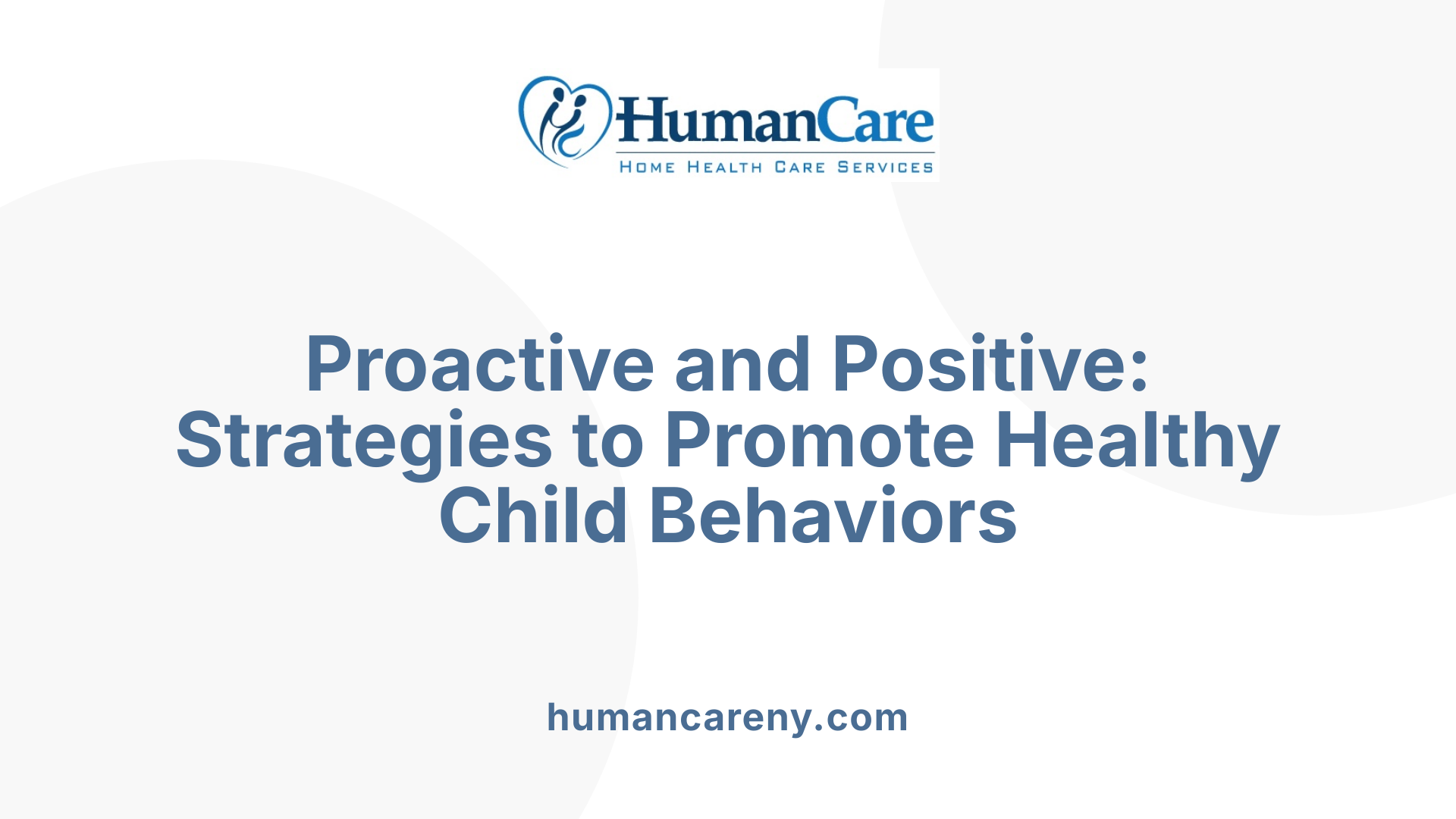
What strategies and principles of pediatric home care support positive behaviors?
Supporting positive behaviors in pediatric home care relies on a mix of proven strategies and underlying principles designed to create a nurturing, structured, and responsive environment.
One foundational approach is Positive Behavior Support (PBS), which emphasizes understanding the root causes of behaviors and teaching alternative, more appropriate skills. Instead of simply stopping undesirable behaviors, PBS focuses on proactive techniques such as prevention, teaching new skills, and positive reinforcement.
Creating predictable and manageable routines is also crucial. Structured schedules, clear expectations, and consistent rules help children feel secure and understand boundaries. Tools like visual schedules or timers can assist children in understanding transitions and reducing anxiety.
Reinforcing positive behaviors through praise and rewards encourages children to repeat helpful actions. Pairing this with modeling calm, respectful responses teaches children how to regulate their emotions and behaviors effectively.
Offering choices within limits gives children a sense of control, fostering independence and cooperation. Engaging them in conversations about feelings and behaviors after they have calmed down further supports social-emotional skills and emotional regulation.
Collaboration with educators, healthcare providers, and participation in evidence-based parent training programs strengthen behavior management efforts. These programs ensure consistent strategies across home and other environments, optimizing the child's development.
Additionally, addressing emotional and behavioral needs through assessments and social-emotional learning enhances long-term behavioral patterns. Recognizing and responding to these needs helps prevent challenging behaviors before they escalate.
In summary, effective pediatric home care leverages proactive prevention, clear routines, positive reinforcement, modeling, and emotional support, all grounded in evidence-based practices and collaborative efforts.
Family Involvement: A Cornerstone of Behavioral Success

How does family participation in pediatric home care influence child behavior?
Family involvement is vital in shaping positive behaviors and emotional health in children receiving home-based care. When families actively participate, they provide consistent routines and emotional stability that foster a sense of security and trust. This nurturing environment helps children regulate their emotions and develop resilience.
Monitoring and advocating for children's needs become easier when families are engaged. They can observe subtle changes, ensure adherence to treatment plans, and communicate concerns promptly to healthcare providers. This proactive stance helps prevent behavioral issues and promotes healthier development.
Reinforcing care routines at home empowers children, making them feel supported and understood. Consistent routines, paired with positive reinforcement like praise and rewards, encourage good behavior and cooperation. Furthermore, participation allows families to incorporate therapeutic strategies and learning opportunities into daily life, reinforcing skills and fostering independence.
Building emotional security through active involvement also reduces anxiety and fear, especially during transitions from hospital to home. Children who feel supported and understood are more likely to display positive social behaviors, participate in learning activities, and develop healthy coping mechanisms.
Engaged families foster open communication and collaboration with healthcare teams, ensuring treatment plans are personalized and followed effectively. This teamwork enhances overall care quality and leads to better behavioral and health outcomes.
In summary, family participation in pediatric home care directly correlates with improved child behavior by creating a stable, nurturing, and responsive environment. Empowered families serve as advocates and caregivers who significantly contribute to fostering emotional well-being and resilience, which are essential for children with complex health needs.
Enhancing Early Relational Health and Childhood Experiences
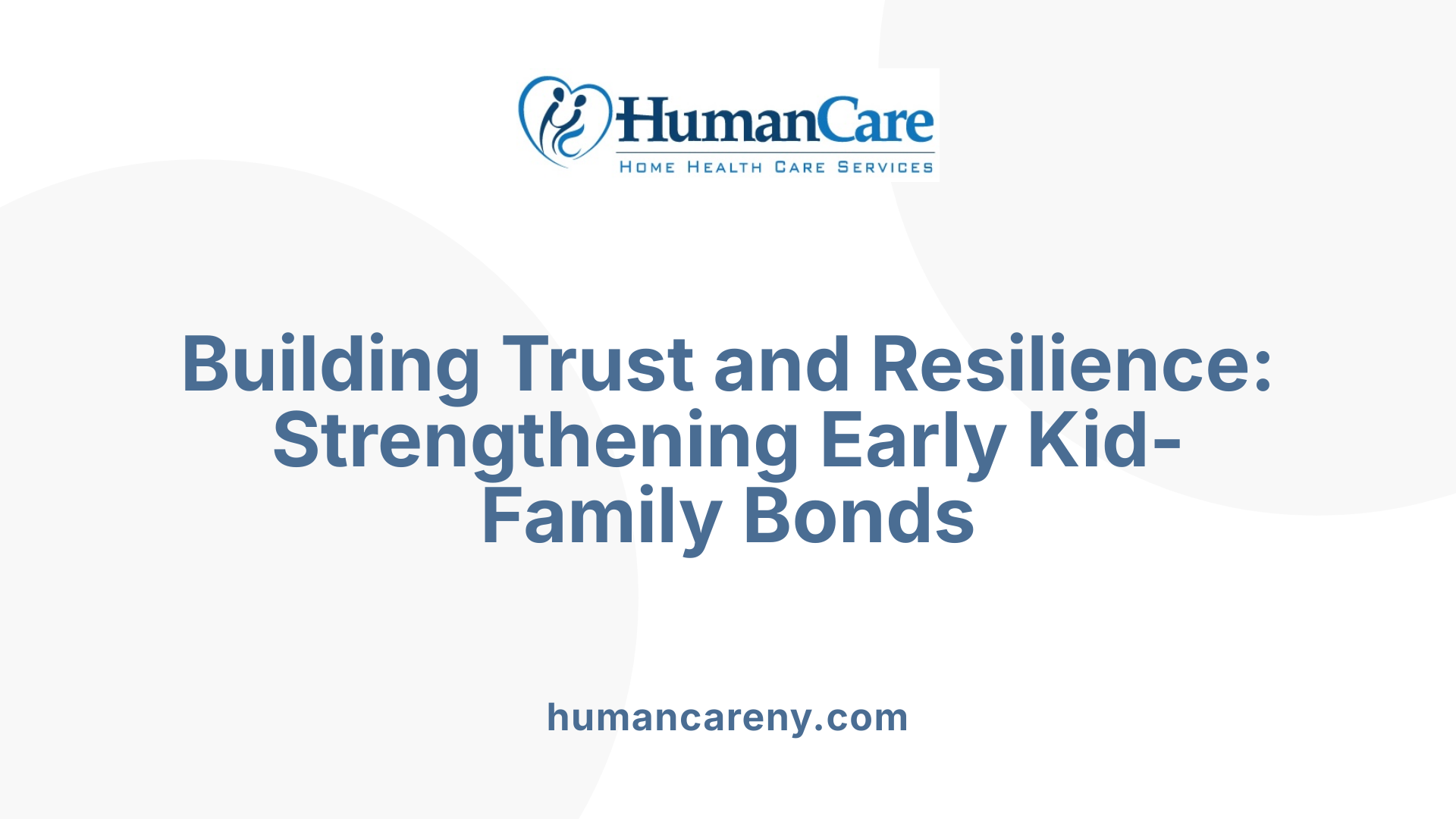
How does pediatric home care enhance early relational health and foster positive childhood experiences?
Pediatric home care plays a crucial role in strengthening early relational health by creating a nurturing environment within the child's natural setting—home. Unlike traditional hospital stays, home care provides consistent, familiar interactions between healthcare providers, children, and their families, which helps foster trust and security.
By conducting routine visits, providers can build strong relationships with families, offering anticipatory guidance that prepares parents for developmental milestones and caregiving challenges. These engagements allow caregivers to better understand and respond to their child's emotional and social needs, promoting secure attachments.
Providing education and support during home visits empowers families to create a supportive environment that encourages children to explore, express emotions, and develop resilience. Techniques like effective communication, therapeutic play, and humor are utilized to establish trust and facilitate positive interactions.
Moreover, integrating training for caregivers within pediatric home care ensures that nurturing relationships are sustained and reinforced, leading to healthier emotional, social, and neurodevelopmental outcomes. This consistent, supportive approach helps buffer against adverse social determinants such as poverty and racism, fostering positive childhood experiences.
| Aspect | Details | Additional Insight |
|---|---|---|
| Building secure attachments | Routine visits and responsive care build trust | Foster lifelong well-being |
| Supporting emotional development | Use of therapeutic play and communication | Enhances emotional resilience |
| Routine assessments & anticipatory guidance | Early intervention and developmental monitoring | Addresses social drivers of health |
In essence, pediatric home care is much more than medical support; it is a platform that nurtures early relationships, fosters emotional security, and promotes healthy development. These early positive experiences set the foundation for children to thrive physically, emotionally, and socially across their lifespan.
Evidence Supporting Behavioral Benefits of Pediatric Home Care
What evidence exists linking pediatric home care to improved behavioral outcomes?
Research indicates that high-quality pediatric home health care significantly benefits children’s mental health and behavioral development. These services often reduce the frequency of hospitalizations and emergency visits, leading to greater stability in care routines.
Programs like the Medical Acute and Comprehensive Care (MAACC) model demonstrate that when healthcare providers collaborate within primary care settings, children show notable decreases in anxiety and depression symptoms. This integrated approach, combining therapy and medication management, contributes to better behavioral stability.
Furthermore, tailored interventions play a crucial role in supporting children with complex needs. For example, placing children in stable, appropriate out-of-home environments — rather than multiple institutional placements — correlates with improved long-term behavioral outcomes. Such tailored care reduces risks associated with adverse effects seen in less consistent settings.
Overall, the evidence suggests that a combination of comprehensive home health services and specific mental health interventions fosters behavioral improvements. These approaches not only support emotional well-being but also help sustain developmental progress.
Although current data is promising, further studies are necessary to better understand the precise mechanisms of these benefits. Optimizing care models and integrating mental health support into pediatric home care will continue to improve outcomes for vulnerable children.
Integrating Trauma-Informed Care and Mental Health Services
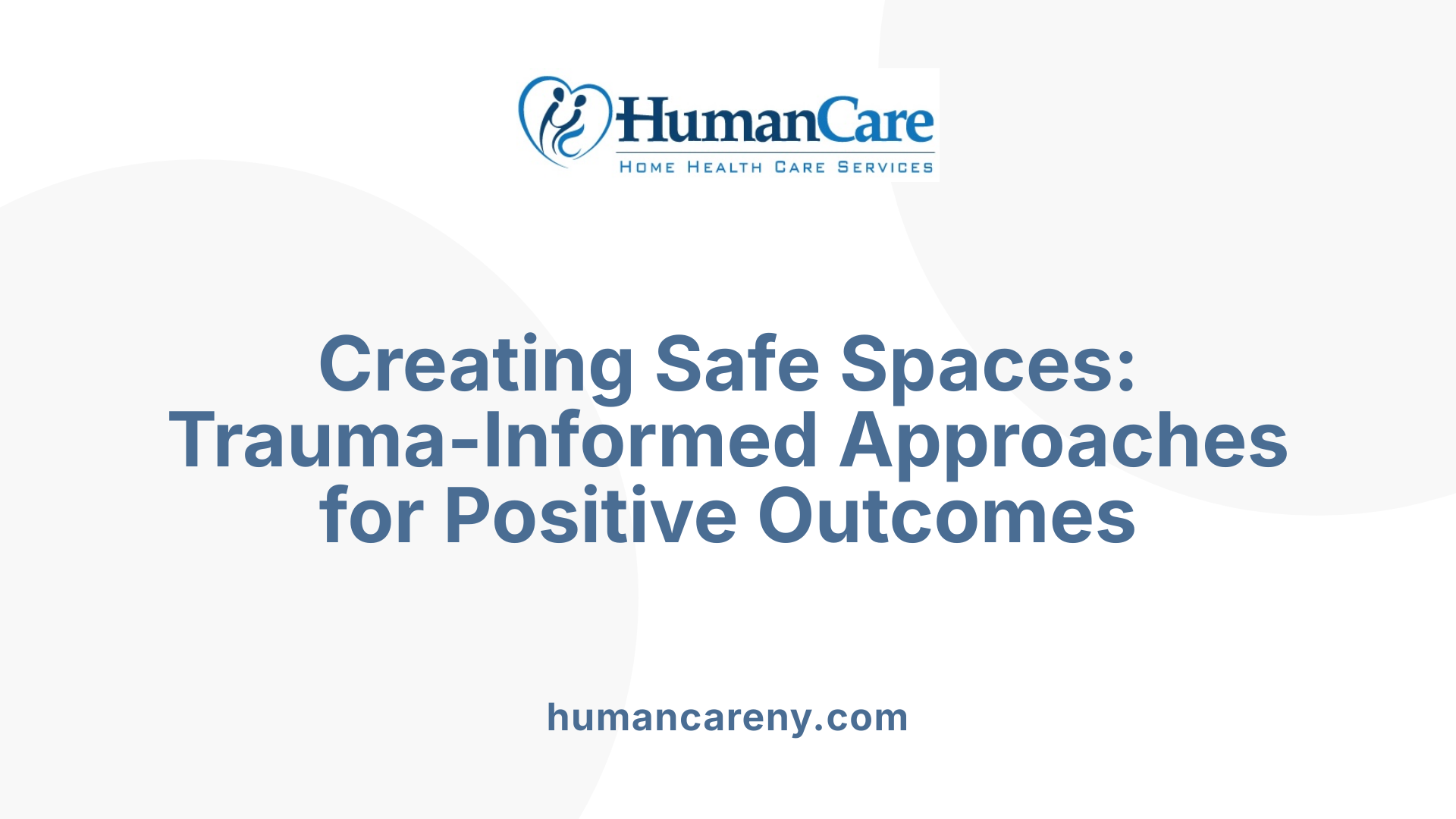
What approaches within pediatric home care, such as trauma-informed care and integrated mental health services, help foster positive behavior?
In pediatric home care, various approaches focus on creating an environment that supports emotional well-being and positive behavior. Trauma-informed care emphasizes understanding and responding sensitively to children’s experiences of adversity or trauma, which often influence their behavior. This approach encourages caregivers to foster a sense of safety, trust, and emotional security, helping children feel more in control and less anxious.
Integrated mental health services in primary care settings further enhance these efforts by providing accessible, continuous support for emotional and behavioral concerns. Embedding mental health professionals within the pediatric care team allows for early identification and intervention, reducing the risk of developing more serious issues.
Positive Behavior Support (PBS) plays a central role in this framework. It focuses on understanding the root causes of behavioral challenges and teaching children adaptive skills rather than punishing undesirable behaviors. Caregivers are guided to establish clear routines, use positive reinforcement, and model calm, respectful interactions.
Building strong, trusting relationships between caregivers and children is essential. When children trust their caregivers, they are more receptive to learning new skills and managing emotions. Consistent routines, offering choices, and engaging in open, respectful communication help children develop emotional regulation and social skills.
Creating a supportive and predictable environment within the home encourages children to feel safe and valued. This stability supports healthy development and reduces behavioral issues related to uncertainty or fear.
Overall, these integrated strategies—trauma-informed care, mental health support, and positive behavior reinforcement—work together to proactively prevent behavioral issues, promote resilience, and strengthen family functioning. They help children develop the skills necessary for adaptive behavior, emotional regulation, and social success in their home environments.
The Role of Healthcare Providers and Telemedicine in Supporting Positive Outcomes
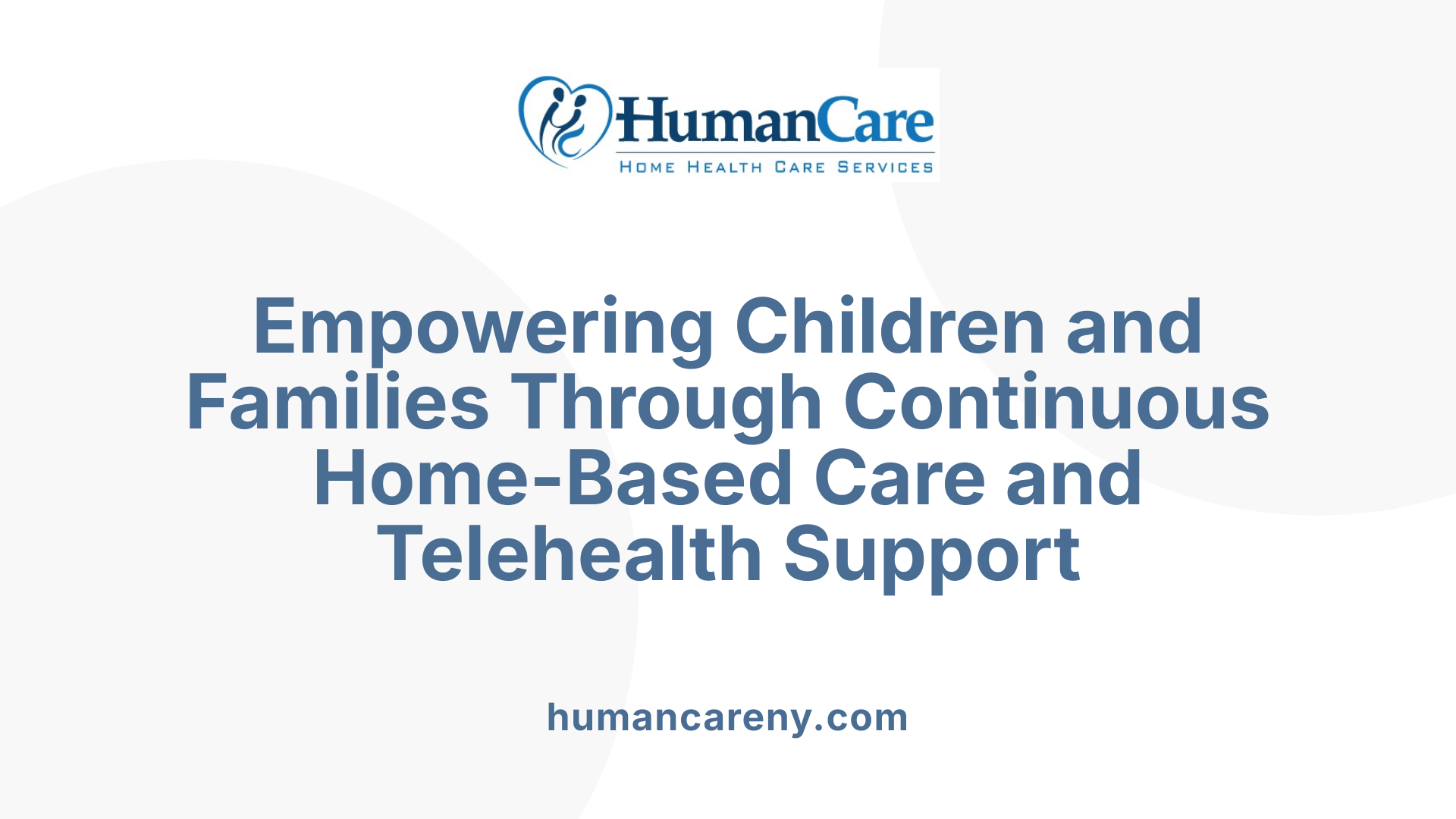
How does pediatric home care promote positive behavioral outcomes through healthcare provider involvement and telemedicine?
Pediatric home care plays an essential role in fostering positive behavioral development by integrating healthcare provider involvement with the benefits of telemedicine. This approach ensures children receive consistent, personalized support within a familiar environment, which is crucial for emotional and behavioral stability.
Healthcare providers actively participate in ongoing monitoring and support, conducting regular home visits and consultations. These interactions allow professionals to observe behavioral patterns closely and make timely adjustments to care plans. Families can also receive immediate guidance and reassurance, which helps reduce anxiety and fosters confidence in managing their child’s needs.
Telemedicine enhances this model by offering remote access to specialists, mental health professionals, and multidisciplinary teams. This instant communication helps in the early identification of behavioral or emotional challenges, leading to prompt intervention. Families benefit from immediate support, troubleshooting, and educational resources that might otherwise require stressful visits to clinics or hospitals.
Through these combined efforts, pediatric home care encourages early intervention, supports emotional regulation, and promotes positive conduct. Building strong caregiver-provider relationships and ensuring continuous engagement contribute to children’s healthier development, reduced behavioral issues, and better overall well-being.
| Aspect | Benefit | Additional Detail |
|---|---|---|
| Regular visits | Continuous monitoring | Allows assessment of behavioral progress and timely care plan adjustments |
| Telehealth consultations | Immediate specialist access | Facilitates early detection and intervention for emotional or behavioral issues |
| Caregiver reassurance | Reduced stress | Builds parental confidence and promotes home stability |
| Personalized support | Improved outcomes | Tailors interventions to individual child needs |
| Emergency avoidance | Less hospital visits | Ongoing support prevents escalation of behavioral problems |
This integrated care approach supports families by fostering a proactive environment that encourages positive behaviors, emotional resilience, and overall development, ensuring children thrive at home.
Conclusion: The Future of Pediatric Home Care and Behavioral Health
The future of pediatric home care in promoting positive behavioral outcomes is poised for significant advancement through systemic reforms and innovative care models. To truly support children and families, healthcare systems need to adopt approaches that are family-centered and trauma-informed, recognizing each child's unique experiences and needs.
One of the main directions involves addressing broader structural factors such as racism, poverty, and rurality, which influence health disparities. Ensuring equitable access to care means tackling these social determinants directly and integrating equity-focused policies into pediatric services.
Incorporating technology, especially telemedicine, will play a crucial role in expanding reach and maintaining high-quality care 24/7. Telehealth not only provides continuous support but also fosters family involvement and empowers caregivers through remote monitoring and educational resources.
Expanding behavioral health services within primary care settings—through models like collaborative care, on-site interventions, and telehealth—can reduce stigma and improve access for children with internalizing and externalizing challenges. These integrated models help normalize mental health treatment and facilitate early intervention.
Moreover, strengthening collaborations across sectors such as schools, community organizations, and social services will create a holistic support network. These partnerships can help sustain positive behaviors and resilience, especially for children exposed to adversity.
Continued research and training are vital. Healthcare providers need ongoing education in trauma-informed, culturally competent practices to effectively meet diverse family needs. Evidence-based practices must be refined through research, ensuring interventions are effective and tailored.
The overarching goal is to build resilient families and support optimal child development within accessible, adaptable, and compassionate care systems. Emphasizing family involvement, addressing social barriers, and leveraging technology will define upcoming strategies in pediatric home care and behavioral health.
Closing Thoughts on Enhancing Children's Well-being
Pediatric home care stands as a pivotal platform for nurturing positive behavioral outcomes through personalized, family-centered, and trauma-informed practices. By fostering early relational health, supporting family engagement, and leveraging innovative interventions and technology, home-based pediatric care can create a nurturing environment conducive to healthy development. Continued efforts to expand accessible services, address systemic inequities, and innovate models of care will ensure that every child receives the support they need to thrive emotionally, socially, and developmentally throughout their lifespan.
References
- Promoting Positive Behavior Support in the Home ...
- Promotion of Positive Childhood Experiences and Early ...
- How Family Participation Improves Pediatric Home Health
- The Integration of Behavioral Health Interventions in ...
- The experience of children and family in pediatric home ...
- Pediatric collaborative care outcomes in a regional model
- Long-term Health and Social Outcomes in Children ...
- Long-term Health and Social Outcomes in Children ...

